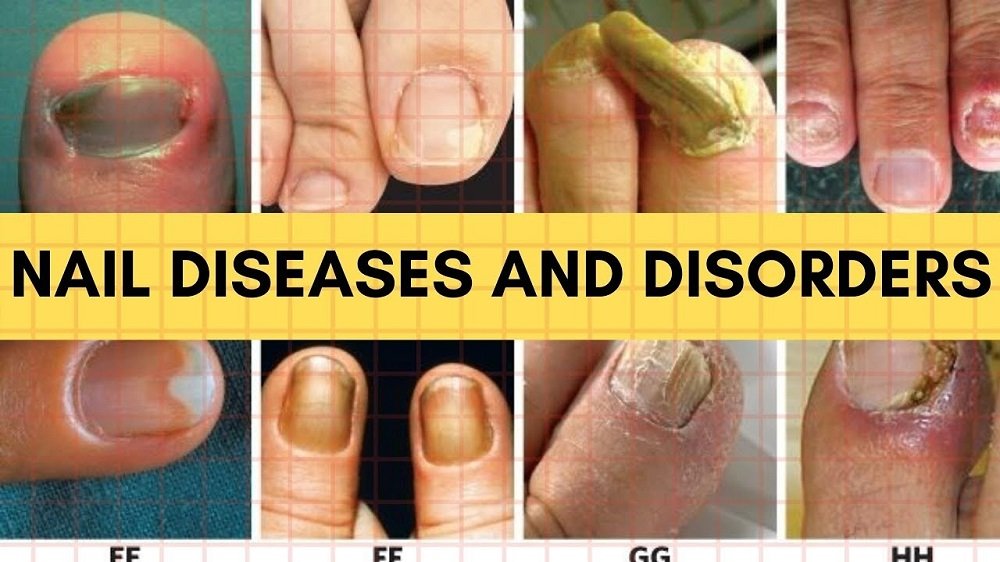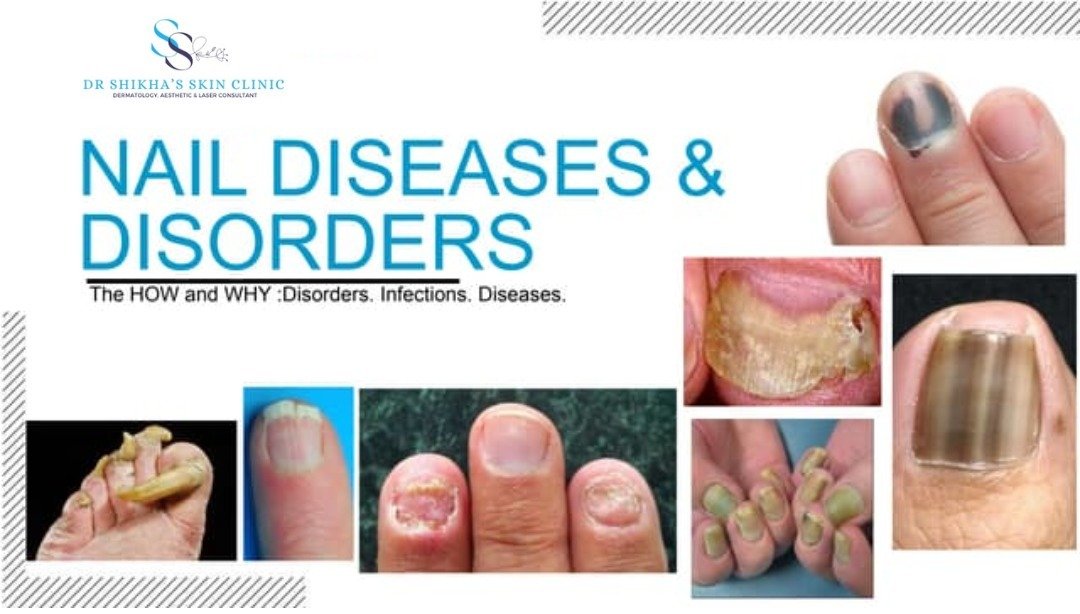Nail Disorder
Nails can often turn yellow and become thicker, starting at the edges and moving to the center. This condition is usually caused by a fungal infection, known as onychomycosis, which can make the nails crumble. When this infection occurs under the feet or between the toes, it’s called athlete’s foot. For effective nail infection treatment in Bhopal, seek professional care. If you need reliable nail infection treatment in Bhopal, our experts are here to help.

Fungal nail infection occurs due to the growth of fungi in or around the nail. Fungi thrive in warm and moist environments. People with weakened immune systems, diabetes, frequent smokers, those with a family history of nail fungus, older individuals, or those who spend a lot of time in wet areas are more susceptible to nail fungi. This condition is contagious and can spread from person to person through contact.
The fungal infection in nails grows slowly and steadily, commonly affecting toenails. Initially, it may be difficult to notice any changes in the nail’s appearance or texture. Therefore, it is important to be aware of these visible signs before the condition worsens:
- Visible scaling under the nail
- White or yellow streaks on the nail
- Subtle crumbling of the nail from the edges
- Development of white flakes on the nail surface
- Yellow spots on the underside of the nail
- Separation of the nail from the nail bed
- Thickening of the nail
- Foul odor from the discolored nail

How Are Fungal Infections Caused?
Fungal nail infection occurs due to the growth of fungi. Various fungi, including yeast and molds, can cause nail infections, but the most common culprit is dermatophyte.
Nails become infected with fungus as a result of aging, as nails become more brittle and develop cracks, providing an entry point for fungi. A weakened immune system and poor blood circulation to the feet can also contribute to the disorder. It is also common in athletes who experience excessive sweating, causing their feet to remain damp inside their shoes.
Treatments for Fungal Nail Infection If you have a prolonged fungal infection in your nails, it is important to visit a doctor for a proper diagnosis. You may be advised to undergo one of the following treatments to eliminate the condition.
Topical Treatments
- Ciclopirox
- Naftifine
- Terbinafine
Oral Medication
For more severe infections, antifungal pills may be prescribed to boost your immune system's ability to fight the infection. Common antifungal drugs include terbinafine and itraconazole. These medications help regenerate healthy nails. Blood tests are typically conducted every six months to ensure the medication isn't causing other problems.
Laser Treatment
If topical and oral medications are ineffective, nail fungus can be treated with laser light. High-intensity laser light targets the infected area to destroy fungal growth.
Nail Removal
If all other treatments fail, the infected nail may be removed to allow a new nail to grow. This can be done using a strong chemical solution or through surgery.
Prevention Tips Regardless of whether you have previously had a nail fungal infection, follow these prevention tips to avoid future infections:
- Dry your hands and feet thoroughly after washing to prevent moisture buildup. Then, apply moisturizer to your nails.
- Regularly trim your fingernails and toenails to prevent infections. Use a nail file to smooth the edges.
- If you wear shoes regularly, opt for sweat-absorbing socks, and change them daily.
- Choose shoes made of breathable materials that allow ventilation.
- Replace old shoes or use antifungal powders in them to prevent infections.
- Avoid walking barefoot in damp areas such as by the pool. Always wear footwear in wet places.
- Ensure your beautician uses sterilized equipment during manicure and pedicure sessions.
- Avoid using artificial nails.
Frequently Asked Questions
Dr. Shikha Shivhare treats a wide range of nail problems, including nail infections, fungal nail infections (onychomycosis), nail psoriasis, ingrown toenails, and brittle nails. She provides personalized treatment plans tailored to each patient’s specific needs.
Symptoms of nail infections that require treatment in Bhopal include nail discoloration (yellow or brown nails), thickened nails, nail crumbling, nail separation from the nail bed, and foul odor from the affected nail. If you experience any of these symptoms, it is advisable to seek prompt treatment from Dr. Shikha Shivhare.
Yes, nail infection treatment is available at Dr. Shikha Shivhare’s clinic in Indrapuri. Whether you have a fungal nail infection or other nail-related concerns, Dr. Shikha Shivhare offers comprehensive treatment services to address your needs effectively.
To schedule a consultation for nail infection treatment with Dr. Shikha Shivhare in Bhopal, you can contact her clinic directly. Conveniently located in areas such as Minal Residency, Indrapuri, and Raisen Road, Dr. Shikha Shivhare’s clinic offers expert nail care services to patients in Bhopal and surrounding areas.
